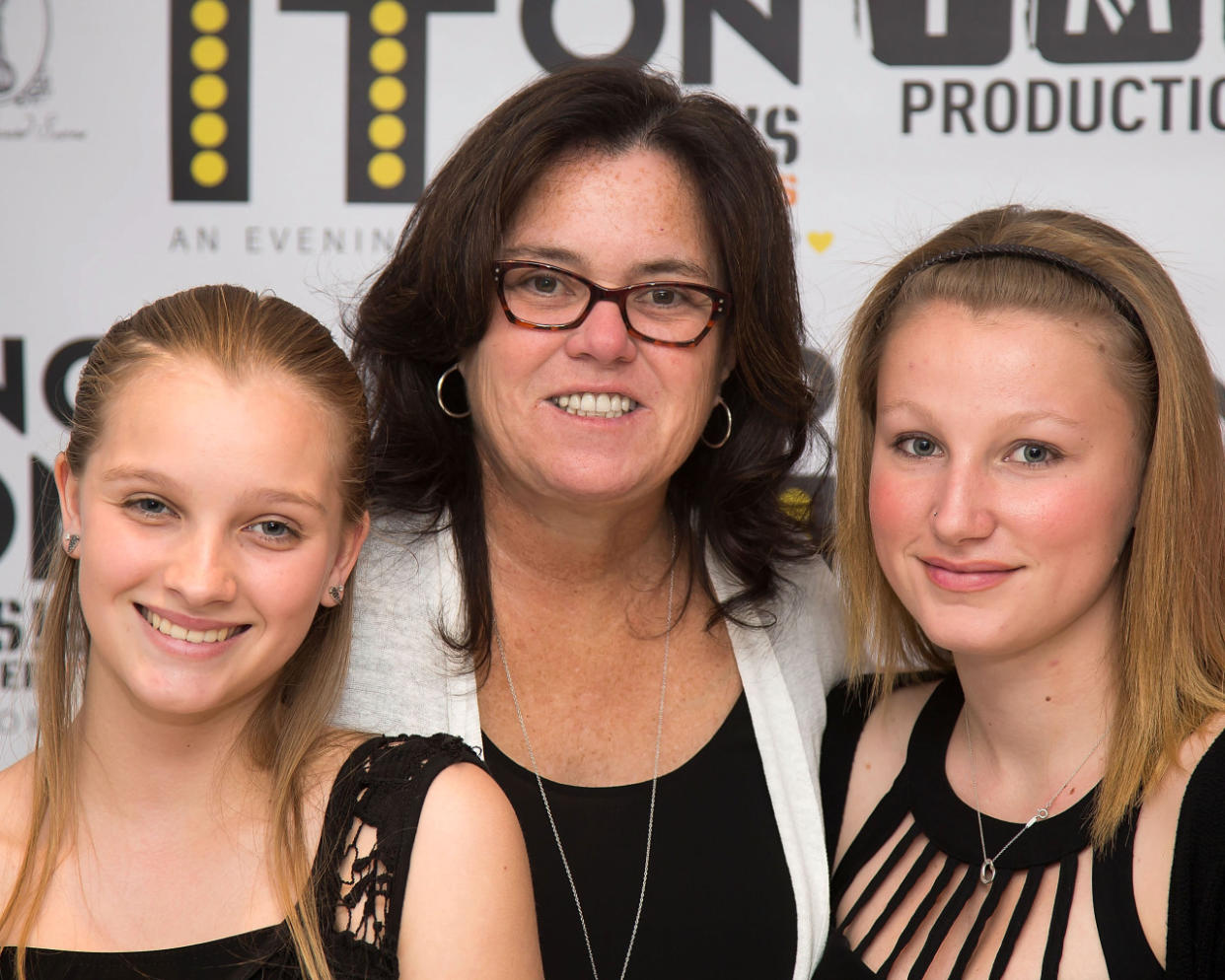Why Did Rosie O’Donnell’s Daughter Go Public?

Rosie O’Donnell has spoken out about her teenage daughter’s condemnatory interview with the Daily Mail, calling it “heartbreaking on every level.”
In Tuesday’s no-holds-barred discussion with the British tabloid, Chelsea, 18, talked publicly for the first time about when she went missing in August and was eventually found living with a man named Steven M. Sheerer (whom she is reportedly now living with in New Jersey).
STORY: The Age Kids Lie the Most, According to Science
Chelsea, one of O’Donnell’s five adopted children, spoke unreservedly about her mom’s alleged private conduct — from never cooking or wearing makeup at home to frequently smoking pot and having a short fuse. The teen also denied having a mental illness — something O’Donnell claimed publicly about Chelsea after her disappearance — and accused her mom of being “not genuine” and “a completely different person in public than at home.”
Some experts see Chelsea’s public breach as a clear cry for attention.
STORY: Why the DMV Denied a Driver’s License to a Teen With Depression
“Her mother’s attention is probably hard to get, and this is one way to get it, through the public realm,” adolescent psychologist and author of Teenage as a Second Language Barbara Greenberg tells Yahoo Parenting. “She may be creating a crisis as a way of getting things worked out,” and by doing it this way — through the media — Chelsea is following the lead of her mother, who “does everything in a big way.”
Greenberg adds, “This kid seems really angry, as many teens are, that her parent is perceived one way by the public and is another way privately.” One of the biggest complaints she hears from teen clients, in fact, is about their parents “misrepresenting” themselves. “They’ll say, ‘They’re going to come in here and act all sweet, but don’t let them pull the wool over your eyes,’” she says.
According to family therapist Paul Hokemeyer, “The teenage years are marked by an evolutionary need to separate from their parents. Some teenagers do this more graciously than others. Children of celebrities and of highly successful parents often have a very difficult time separating with grace. This is a function of the fact that their parents are larger than life and have an often inconsistent and conflicting public and private persona.”
A move like Chelsea’s, Hokemeyer says, “is definitely an attention tactic” as children of celebrities “feel the need to take extreme measures to step out of the brilliant light of their parent’s star.” And oftentimes, those measures can be self-destructive.
“They act out in harmful ways to get the attention they are starving for,” he explains. “This is why we see so many teens of powerful parents turning to drugs, alcohol, and irresponsible sex. They feel that being good will get them nowhere, so the only option they feel will serve them is in being bad.” By doing so, Hokemeyer says, the teens are engaging in “rescue fantasies,” and it’s important that parents recognize such patterns so they can intervene.
“The best way to do it is to meet their children where they are and validate them, instead of pathologizing them, for their behaviors,” he suggests. “They need to acknowledge their children’s experience is real, and work as a family to ameliorate it.” The good news? “In my experience,” he says, “the love of a family heals all wounds.”
(Photo of Rosie O’Donnell with daughters Vivienne, left, and Chelsea, by Ben Hider/Getty Images)
Please follow @YahooParenting on Facebook, Twitter, Instagram, and Pinterest. Have an interesting story to share about your family? Email us at YParenting (at) Yahoo.com.



